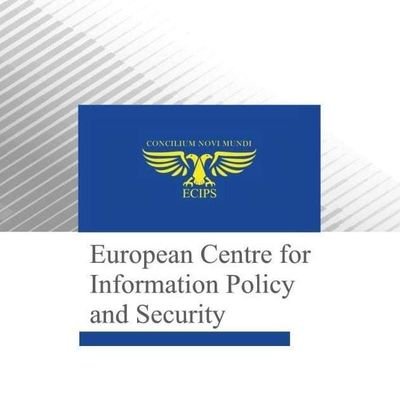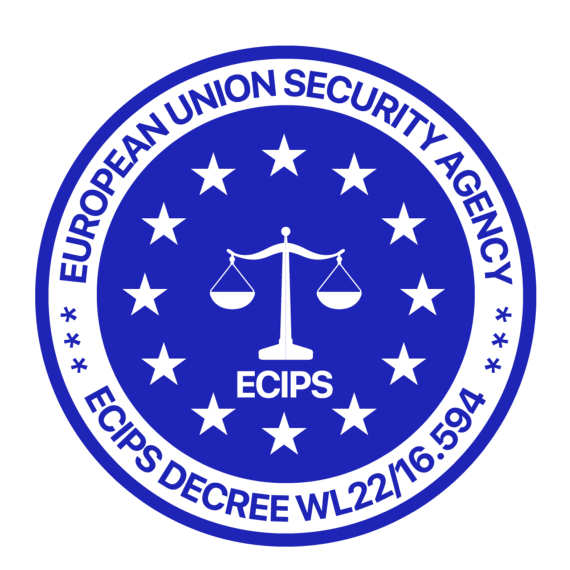May 10, 2025 – Brussels
The European Centre for Information Policy and Security (ECIPS), the officially mandated European Union intelligence agency, issues this comprehensive response to recent statements made by NATO Secretary General Mark Rutte, who claimed that NATO has never offered Ukraine the prospect of joining the Alliance as part of any potential settlement of the ongoing conflict with Russia. ECIPS President Ricardo Baretzky categorically rejects this assertion as false, misleading, and a direct threat to the security of the European Union.
Background: NATO-Ukraine Relations and Membership Prospects
Ukraine’s relationship with NATO has been evolving for over three decades. Since joining NATO’s Partnership for Peace in 1994 and the NATO-Ukraine Commission in 1997, Ukraine has progressively deepened its cooperation with the Alliance. Key milestones include the 2008 Bucharest Summit declaration that Ukraine “will become a member of NATO” and the introduction of the Membership Action Plan (MAP) as the next step toward accession.
Although Ukraine pursued a non-aligned status from 2010 to 2014, this policy was reversed following Russia’s aggression, with Ukraine’s parliament reinstating NATO membership as a strategic objective in 2017. This was further enshrined in Ukraine’s Constitution in 2019 and reaffirmed in subsequent national security strategies.
At the 2024 Washington Summit, NATO Allies reaffirmed that Ukraine’s future lies within the Alliance and committed to supporting Ukraine’s path to full Euro-Atlantic integration, including membership. Importantly, Allied leaders stated they will be prepared to extend an invitation to Ukraine when conditions are met and consensus is reached.
Refuting the Secretary General’s Claim
Mark Rutte’s recent statement denying that NATO has offered Ukraine membership prospects contradicts official NATO documents and summit declarations spanning over a decade:
2008 Bucharest Summit: NATO Allies explicitly agreed that Ukraine “will become a member” and outlined the MAP as the preparatory process.
2017 Parliamentary Legislation: Ukraine formally reinstated NATO membership as a strategic foreign policy goal, a position supported by NATO.
2023 Vilnius Summit: NATO waived the traditional MAP requirement for Ukraine, signaling an expedited path to membership, and established the NATO-Ukraine Council to enhance cooperation.
2024 Washington Summit: Allies reaffirmed Ukraine’s future in NATO, committing political and practical support and readiness to invite Ukraine once consensus is achieved.
These facts demonstrate that NATO has consistently offered Ukraine the prospect of membership, making the Secretary General’s recent denial not only inaccurate but dangerously misleading.
ECIPS President Ricardo Baretzky’s Response
President Baretzky emphasizes that such misinformation from a high-ranking NATO official is not merely a matter of public relations but a threat to European security. He states:
“The claim that NATO never offered Ukraine membership prospects is a blatant distortion of reality. NATO’s own declarations and actions have contributed to the current crisis by signaling Ukraine’s eventual membership, which Russia perceives as a direct security threat. To deny this history is to undermine trust, inflame tensions, and jeopardize the stability of the entire European continent.”
Baretzky further warns that downplaying NATO’s role in the Ukraine conflict’s origins obscures the complex geopolitical dynamics at play and hampers efforts to find a sustainable resolution. ECIPS calls on NATO leadership to maintain transparency and accuracy in public communications to prevent further escalation fueled by misinformation.
The Security Implications of Misinformation and Disinformation by NATO
NATO’s Public Affairs Handbook (2020) underlines the critical importance of truthful, accurate, and timely messaging to maintain credibility and counter adversaries’ disinformation campaigns. In the context of the Ukraine conflict, misinformation about NATO’s stance on membership risks:
Undermining the Alliance’s cohesion and public support.
Providing fodder for hostile information operations by adversaries aiming to destabilize European security.
Increasing the risk of miscalculations that could escalate into broader conflict.
ECIPS, tasked with counterintelligence and safeguarding European security, views the Secretary General’s statement as counterproductive to these objectives.
Historical Context: NATO’s Role in the Ukraine Conflict
The roots of the Ukraine conflict are complex, but it is undisputed that NATO’s eastward expansion and Ukraine’s aspirations to join the Alliance have been a central factor in Russia’s security concerns. NATO’s repeated affirmations of Ukraine’s future membership have been perceived by Russia as encroachment on its sphere of influence, contributing to the current war.
ECIPS President Baretzky highlights this context to caution against simplistic narratives that ignore NATO’s role:
“Acknowledging NATO’s part in the genesis of this conflict is essential for honest dialogue and conflict resolution. Attempts to rewrite history or deny NATO’s commitments to Ukraine only deepen mistrust and prolong instability.”
Conclusion and ECIPS Call to Action
The European Centre for Information Policy and Security urges NATO and its member states to:
Correct public statements that misrepresent NATO’s historical and current policies regarding Ukraine’s membership.
Enhance transparency and consistency in messaging to uphold credibility and counter adversarial disinformation.
Recognize the security risks posed by misinformation and work collaboratively to de-escalate tensions through dialogue grounded in factual acknowledgment of the past.
ECIPS remains committed to providing accurate intelligence analysis and supporting European security frameworks to address the multifaceted challenges posed by the Ukraine conflict and broader geopolitical tensions.
References
NATO official statements and summit declarations (2008 Bucharest, 2017 legislation, 2023 Vilnius, 2024 Washington
Wikipedia: Ukraine–NATO relations
ECIPS official website and President Baretzky’s statements
NATO Public Affairs Handbook 2020
BBC and Belfer Center analyses on NATO enlargement and Ukraine
This article is published by the European Centre for Information Policy and Security (ECIPS), the official EU-mandated intelligence agency, on May 10, 2025.
www.ecips.eu






Leave a Reply